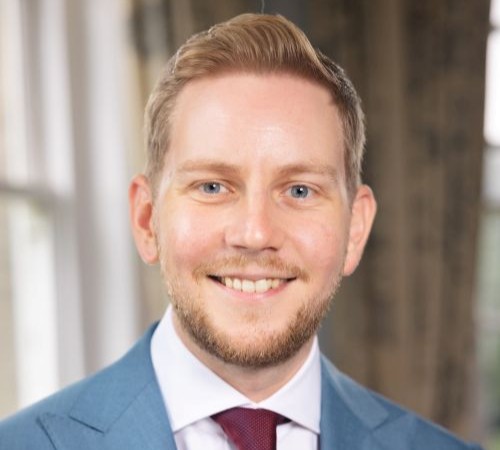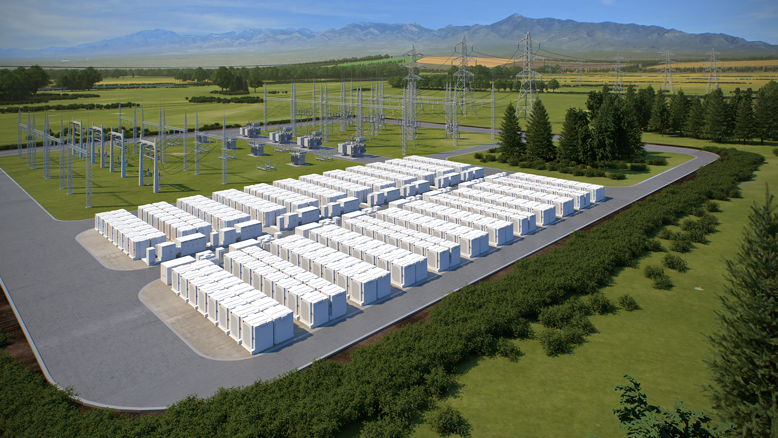Case study: Financial crisis led to a change of engineering direction
Every graduate dreads losing a dream job offer, but when this happened to Marek as the result of the worst financial crisis since the Great Depression, he pivoted and embraced a new engineering opportunity.
Marek completed an Engineering Doctorate (EngD) in renewable energy integration, which kickstarted a ‘new’ career. Now Director of energy storage at NEOM, he also advises the UN on energy storage.

Mini CV
- 2005 to 2009: Civil engineering, Durham University
- 2009 to 2013: EngD in technologies for sustainable built environments while working as a research engineer, The AES Corporation
- 2013 to 2014: Renewable energy consultant, Electricity Association of Ireland
- 2013 to 2016: Business strategy consultant, then customer solutions and commercial projects manager at The AES Corporation
- 2016 to 2017: Market director, AES Energy Storage
- 2018 to 2020: Market director, Fluence
- 2019 to present: Energy storage expert, United Nations
- 2021 to 2023: Managing director, Fluence
- 2023 to present: Director of energy storage, NEOM
Gearing up for big things
Marek decided to specialise in civil engineering: “I wanted to work for a Buro Happold or an Arup, and then potentially launch my own consultancy further down the line and do it for myself,” he says. He applied for the ELS programme hoping to meet
similarly motivated engineers from different disciplines.
In 2009, he organised a trip to Japan to explore his interests, including a trip to see Hitachi’s robotics work and a nuclear power station where he donned a radiation suit and went into the reactor chamber. Marek also visited a sustainable housing community near Mount Fuji. “The Japan trip was one of the biggest and most unusual things I got to do as part of the scholarship, which otherwise I wouldn’t have done,” he says.
A big change
Marek was sponsored at university by the Happold Trust and did summer placements at Buro Happold. He had a job offer, but lost it before he started in the height of the 2009 recession. “This is when I pivoted and my career took me in a different direction,” he says. Marek decided to do a doctorate in renewable energy integration, looking at the challenges of renewable variability on grids. “I got an attractive salary and got to do PhD level research – working on a problem that really mattered – in industry,” he says.
Afterwards, he worked at a power station near Belfast, slowly moving into designing large-scale energy storage systems to help link to the grid, and before leading the development of Europe’s first commercial battery engineering project, which involved developing the project, raising investment, getting approval and seeing it built.

Fluence and NEOM
Next, Marek moved to Amsterdam to launch and scale an energy storage technology company, Fluence. “I joined as one of the founding team and we scaled very fast, ultimately with a $4.7 billion stock market IPO in under three years to fuel our growth,” he explains. “Post-IPOI stayed on as managing director of Western Europe, leading the regional sales organisation for energy storage products, software and services.”
At the end of 2023, Marek relocated to Saudi Arabia to work on the world’s largest sustainable infrastructure project, NEOM. The project is best known for its iconic car-free city, THE LINE, one of the FIFA World Cup host cities in 2034. The whole region is to be powered by 100% renewable energy, requiring very significant energy storage development and deployment.
Advice
He says the funding is helpful for doing something you otherwise wouldn’t be able to do. “Think as big as you can and find a way to be able to justify it,” he advises. “Being able to blend something that’s memorable, fun and useful to my development was one of the key benefits of the ELS programme.”
Interested in participating in the Engineering Leaders Scholarship?
Visit the programme pages to find out more about how it could benefit you and your career.
